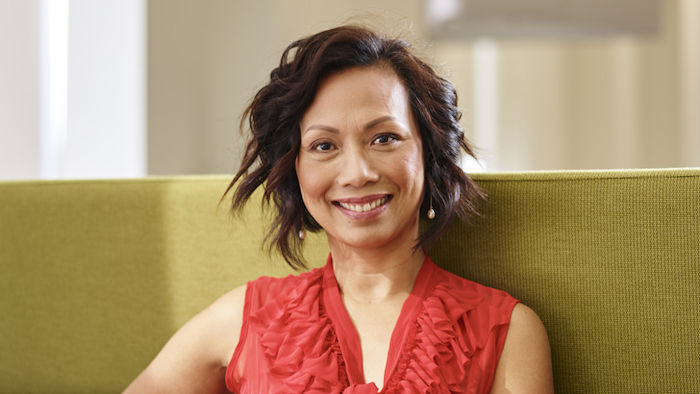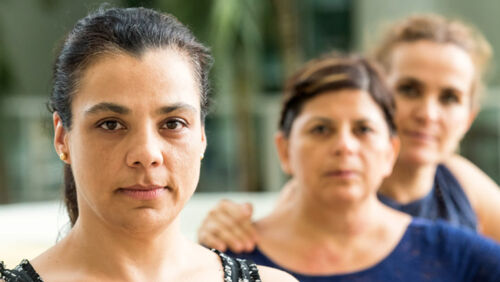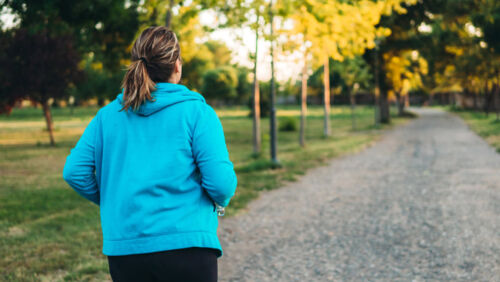Dai Le shares how cancer changed her thoughts about money
By Julia Newbould
Fairfield councillor Dai Le has been in politics for 12 years. In that time she has worked tirelessly for the Cabramatta and Fairfield communities setting up DAWN (a network focusing on social impact businesses and leaders with its own media channel, DAWNCast), and South West Entrepreneurial Hub (a forum to bring local businesses together) as well as lobbied for swimming pool and parks. Dai came to Australia as a 'boat person', arriving as a refugee from camps in Hong Kong in 1979.
She has been a journalist at Fairfax and the ABC, and made a television documentary, Operation Babylift, about Vietnamese babies airlifted out of Vietnam.
In 2015, Dai was diagnosed with breast cancer. Since that time, she has been an ambassador stressing the importance of testing and early diagnosis for women in Western Sydney. October is breast cancer awareness month and Dai is passionate about sharing this message: every single person should check their breasts, do not ignore any lumps, and do not take life for granted.
What was your first job?
My first job was as a kitchen-hand working in a German restaurant, aged 15, and haven't stopped since then. First job after uni, after studying law, was waitressing and then bartending in a nightclub in Cabramatta. After waitressing and working in women's clothing store Katies, I ended up getting a full time job as a cadet journalist with the Liverpool City Champion. I went to Macquarie Uni majoring in political science, and then started working at the ABC, and was there as a researcher and journalist until I left to enter politics in 2008. It is my background as a journalist and storyteller which has provided me with the entry point to engage constituents and get them to tell their stories. And, of course, my cultural background makes me relatable to them.
What's the best money advice you've received?
I learned that you have to work and save, and know how to save money wisely. It's not just about saving it and putting it in the bank. In 2005, I decided to open an account and buy shares. I had a financial adviser assess my personality and he told me I was a high-risk investor and so I had a portfolio in high-risk shares. It was a good investment and I've now put some of that money into super.
What's the best investment decision you've made?
My house has given me security but my best investment is my son, investing in his education. He's just finishing school and will hopefully get into a commerce/law degree at UNSW next year. I was entrepreneurial but never guided in the business world. I only discovered that in later life but he's already in the entrepreneurial spirit.
What's the worst investment decision you've made?
I think the worst decision I made was selling my BHP shares in 1998. I was advised to buy BHP shares, which were around $9 in those days, and then I sold them within a few years of buying and I now regret that. (BHP shares are currently around $36.)
What is your favourite thing to splurge on?
I love to splurge on my nails. It's a splurge I can afford. I can afford to splurge on manicures and pedicures.
If you had $10,000 where would you invest it?
I still like to buy Bitcoin, and I would probably put a bit more there. I am a high-risk taker. I've bought Bitcoin before and it's done well. I also bought Ripple, which hasn't done so well.
What would you do if you only had $50 left in the bank?
Buy some seeds and grow vegetables for my garden patch, and grow vegetables to survive on.
Do you intend to leave an inheritance?
Yes, I have super and so with the work that I do and what I want to do in the future, I would like to leave an inheritance for my son.
What's been your best money making career move?
I don't know if moving into politics was the best money-making career move but it's been good that I've been able to impact the community socially. While being a journalist isn't a great money-making career, at least you still get paid.
Did cancer change your views on money?
What cancer did was make me realise that I had to live my life with a purpose, and it also makes me value my time and try to take the social business DAWN and monetise it so the social business is actually a business. It also made me realise that there is an end to life. I had a friend who just died tragically, a really good friend, who lived life to the fullest and he died in an accident. He left behind three kids - I looked at the dates of his birth and death (separated by a dash) and thought 'God gave you a time - this is your time'. You have a beginning date and an end date, and the dash between them is your life, it could be very short. I just think that we don't stop and think enough about death, and how it makes us want to live a more productive life in the present.
Finish this sentence: money makes...
... the world go around. We just have to put the social impact on it. I've come to realise money is not evil - it's the effect on you and your intention and your purpose.
Get stories like this in our newsletters.



